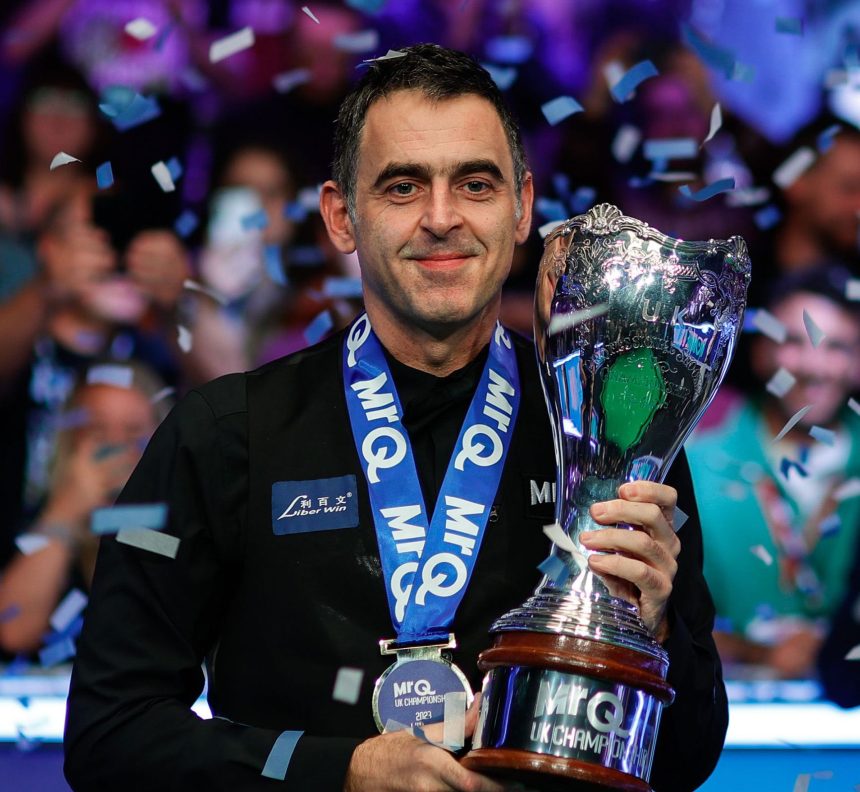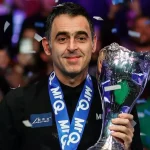Ronnie O’Sullivan’s Shock Retirement U-Turn: Why the Rocket Says He Isn’t Done Yet
When Ronnie O’Sullivan stood before reporters two days ago and uttered the words, “I think it’s time to walk away,” the snooker world froze. For a sport so entwined with one man’s brilliance, the prospect of O’Sullivan calling it quits felt seismic, like a sudden crack in a foundation that had seemed indestructible. The seven-time world champion had hinted at retirement before, often in moments of frustration, but this time appeared different. He looked weary, reflective, even resolved. Fans flooded social media with tributes, rivals issued respectful messages, and commentators began preparing retrospectives on one of the greatest sporting careers ever lived.
Yet, scarcely forty-eight hours later, O’Sullivan has turned the narrative on its head once again. Standing outside the Crucible Theatre in Sheffield, the Rocket flashed a grin that betrayed a flicker of mischief. “Look, I was serious when I said I was done,” he began, “but then I thought about it. I’ve got one more job left. I’m not going to leave it at seven. I want eight. I want Hendry’s record, and then I’ll pack it in.”
The about-face has left both fans and pundits reeling. Stephen Hendry’s record of seven world titles, once thought untouchable, has already been equalled by O’Sullivan. To break it would not simply be another accolade; it would cement his status, in his own eyes at least, as the undisputed greatest of all time. For a man whose genius has always been entwined with restlessness, that final mountain now appears irresistible.
O’Sullivan’s manager, Steve Dawson, admitted privately that he was as surprised as anyone by the reversal. “Ronnie is impulsive. He feels things deeply in the moment. When he said he was retiring, he believed it. And when he woke up two mornings later, he believed something else. That’s Ronnie. The truth is, he needs competition. He needs a target. Hendry’s record gives him that.”
The U-turn has sparked a wave of reactions across the sporting community. Hendry himself, speaking on a BBC podcast, offered a wry chuckle. “I thought I might finally have some peace, but apparently not. Look, if anyone’s going to beat my record, it’s him. He’s got the talent, the hunger, and—despite what he sometimes says—the love for the game. If this means he sticks around for another year or two, that’s good for snooker. It keeps the spotlight where it belongs.”
Current world champion Luca Brecel, who dethroned O’Sullivan last season, welcomed the news as well. “We need Ronnie. He pushes everyone else to be better. If he wants number eight, he’ll have to fight for it, because there are a lot of us who want that trophy too.”
O’Sullivan’s decision is more than personal ambition. It has tangible consequences for the sport itself. Ticket sales at the Crucible surged the moment rumours spread that he might play again next year. Broadcasters, who had quietly dreaded a post-O’Sullivan era, breathed collective sighs of relief. Few athletes embody their sport as completely as he does: Michael Jordan with basketball, Tiger Woods with golf, Serena Williams with tennis. Without O’Sullivan, snooker risks shrinking back into niche obscurity. With him, it thrives.
The question, however, is whether his body and mind can endure another grueling campaign. At 49, O’Sullivan is no longer the invincible prodigy who burst onto the scene in the early ’90s. He admits his practice routines are irregular, his patience limited. “I don’t graft like I used to,” he confessed. “Some days I don’t even want to see a cue. But when the lights are on, something clicks. I live for those moments.”
That paradox—the tortured artist who simultaneously resents and requires his canvas—has always defined O’Sullivan. His brilliance is instinctive, almost casual, but behind it lies decades of mental strain. Sports psychologists point out that retirement for athletes like him is rarely straightforward. Dr. Alan Green, who has studied elite competitors, explained: “When someone’s identity is tied so completely to competition, walking away feels like erasing oneself. O’Sullivan’s back-and-forth is typical. He needs closure, and for him, closure means going out on top.”
Fans seem content to ride the rollercoaster. On forums and Twitter feeds, the mood has swung from sorrow to exhilaration in just two days. One supporter summed it up with the wry observation: “Classic Ronnie. Retires Monday, un-retires Wednesday. By Friday, he’ll probably announce he’s taking up darts.”
For now, though, the Rocket’s path is clear. He will return next season, cue in hand, eyes set firmly on that eighth crown. The countdown begins anew, anticipation humming like electricity across the snooker world. Whether he succeeds or falls short, one truth remains: Ronnie O’Sullivan refuses to exit quietly. His career, like his play, is unpredictable, audacious, and utterly compelling.
As he walked away from the cameras after his latest statement, O’Sullivan glanced back with a playful smirk. “Eight, then I’m gone,” he said. “Unless I change my mind again.”









